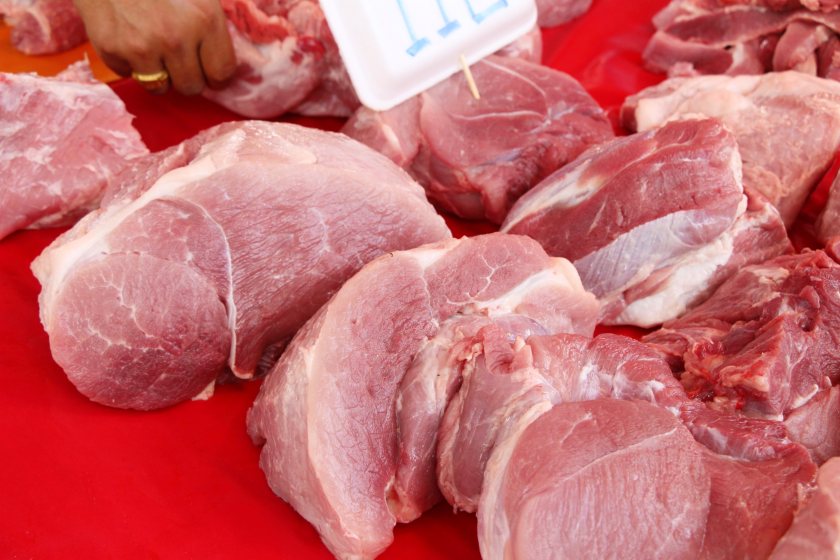
The pig sector has welcomed Defra’s efforts to tighten up the rules governing personal pork imports, but warned it does not go far enough to combat African swine fever.
Defra has confirmed that personal imports of pork and pork products from the EEA (European Economic Area), the Faroe Islands, Greenland and Switzerland are now banned.
However, products manufactured and packaged to EU commercial standards and weigh less than a maximum of 2kg are still allowed.
Defra said the measures had been tightened to safeguard the UK’s pig and farming industries against the threat of diseases like African swine fever (ASF).
Previous measures introduced in September 2022 banned the import of pork and pork products not produced to EU commercial standards that weighed more than 2kg.
But they still allowed individuals to bring in up to 2kg of pork products that did not need to meet any EU commercial standards.
These new rules go further, banning all pork and pork products that that cannot be visibly shown to be produced to EU commercial standards. They also limit imports that are produced to these standards to 2kg.
Those found to bring pork or pork products illegally may be fined up to £5,000 in England. Products will be seized and destroyed on arrival, Defra said.
While the National Pig Association (NPA) said it welcomed efforts to tighten up the rules, total ban on personal imports was needed in order to make the rules easier to understand and enforce.
A number of other countries, including Australia, Japan, the EU, New Zealand and the US, already do not permit personal imports of pork and pork products.
NPA chief executive Lizzie Wilson said: “Removing the allowance for imports of up to 2kg of pork products not produced to commercial standards is a step forward.
"Introducing an additional 2kg limit for pork that has been produced to commercial standards is also an improvement, as no limit existed previously.
“However, we called for a total ban on personal imports to make the rules easier to understand and enforce, so we would have liked to have seen today’s announcement go further.
“We are concerned that, as drafted, there will still be some confusion over exactly what the rules require and they will still be very difficult to enforce."
The NPA also stressed that these changes did not address the real issue of concern, which was the vast quantities of illegally imported pork entering the country in vans and other vehicles by via organised criminals.
The previous government slashed funding for the work of the Dover Port Health Authority in carrying out these ASF checks, with the NPA calling on the current government to provide sufficient resource for this work.
In the body's submission to the Treasury ahead of the Autumn Budget, it urges the government to prioritise the UK’s biosecurity and provide additional resource to Dover Port Health Authority, reversing previous cuts.
The authority has reported seizing around 100 tonnes of illegal pork and pork products since the ASF safeguard was introduced in September 2022, although this is widely considered to be just the tip of the iceberg.
But Defra said the new safeguarding rules would help protect UK livestock by mitigating its spread across the border, estimating that an outbreak of ASF could cost the UK between £10m to £100m.
The department added that this would have a significant impact on the UK’s £8 billion pig sector, as well as its annual pork and pork product exports worth £600 million.
It said it was investing £3.1 million to Dover Port Health Authority for 2024/25 to help Border Force tackle illegal meat imports and keep ASF out of Britain.
